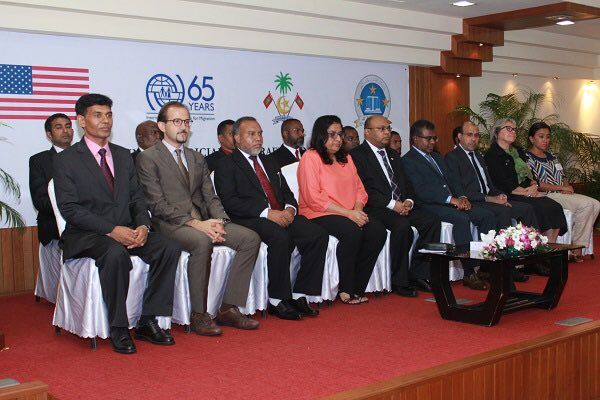Judges pledge to tackle human-trafficking
Maldivian judges have pledged their support to end human trafficking, agreeing to hold awareness sessions with contractors and use a special logo on all construction bid invitations by the judiciary.

08 May 2016, 09:00
Maldivian judges have pledged their support to end human trafficking, agreeing to hold awareness sessions with contractors and use a special logo on all construction bid invitations by the judiciary.
The pledge was signed by the judges of the Supreme Court, appellate and lower courts and senior magistrates at a colloquium organized by International Organization for Migration.
Recognising human trafficking as a “crime that undermines human dignity and human rights,” and one that “opens pathways to many more offences that have grave consequences for society,” judges vowed to “work towards the direction of eradicating human trafficking in the Maldives through cooperation and collaboration with all stakeholders in the state.”
The US state department has placed the Maldives back on its watch list for human trafficking this year, expressing concern over a lack of prosecution of offenders.
Become a member
Get full access to our archive and personalise your experience.
Already a member?
Discussion
No comments yet. Be the first to share your thoughts!
No comments yet. Be the first to join the conversation!
Join the Conversation
Sign in to share your thoughts under an alias and take part in the discussion. Independent journalism thrives on open, respectful debate — your voice matters.




